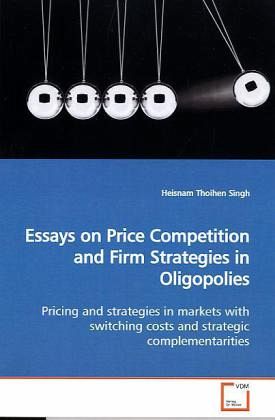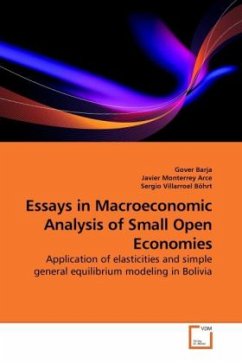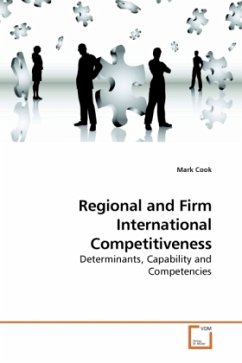
Essays on Price Competition and Firm Strategies in Oligopolies
Pricing and strategies in markets with switching costs and strategic complementarities
Versandkostenfrei!
Versandfertig in 6-10 Tagen
32,99 €
inkl. MwSt.

PAYBACK Punkte
16 °P sammeln!
Firms practice poaching of their rival s customers inmarkets where they are able to identify between their own customersand those of the rivals. This practice results in inefficientlyhigh switching. In some of these markets firms also use strategies thatmake poaching by rival firms harder. Dr. Heisnam Singh explores thepractice of firms requiring customers to sign contracts that areof pre-specified duration specifying early termination charges. Ifcontract with breach penalty is available, firms find it privatelyoptimal to use it. However when all firms use it they are worse off andresults in l...
Firms practice poaching of their rival s customers in
markets where
they are able to identify between their own customers
and those of
the rivals. This practice results in inefficiently
high switching. In
some of these markets firms also use strategies that
make poaching
by rival firms harder. Dr. Heisnam Singh explores the
practice of
firms requiring customers to sign contracts that are
of pre-specified
duration specifying early termination charges. If
contract with
breach penalty is available, firms find it privately
optimal to use it.
However when all firms use it they are worse off and
results in lower
than efficient switching. Consumers may be better off
or worse off.
Dr. Singh also examines the pricing decision of a
typical firm that
sells more than one product in markets where products
are strategic
complements and the firms have some market power. He
find
empirical evidence using data from the US wholesale
market for
unbranded gasoline that a firm internalizes the
strategic
complementarities when optimally choosing its prices.
markets where
they are able to identify between their own customers
and those of
the rivals. This practice results in inefficiently
high switching. In
some of these markets firms also use strategies that
make poaching
by rival firms harder. Dr. Heisnam Singh explores the
practice of
firms requiring customers to sign contracts that are
of pre-specified
duration specifying early termination charges. If
contract with
breach penalty is available, firms find it privately
optimal to use it.
However when all firms use it they are worse off and
results in lower
than efficient switching. Consumers may be better off
or worse off.
Dr. Singh also examines the pricing decision of a
typical firm that
sells more than one product in markets where products
are strategic
complements and the firms have some market power. He
find
empirical evidence using data from the US wholesale
market for
unbranded gasoline that a firm internalizes the
strategic
complementarities when optimally choosing its prices.












